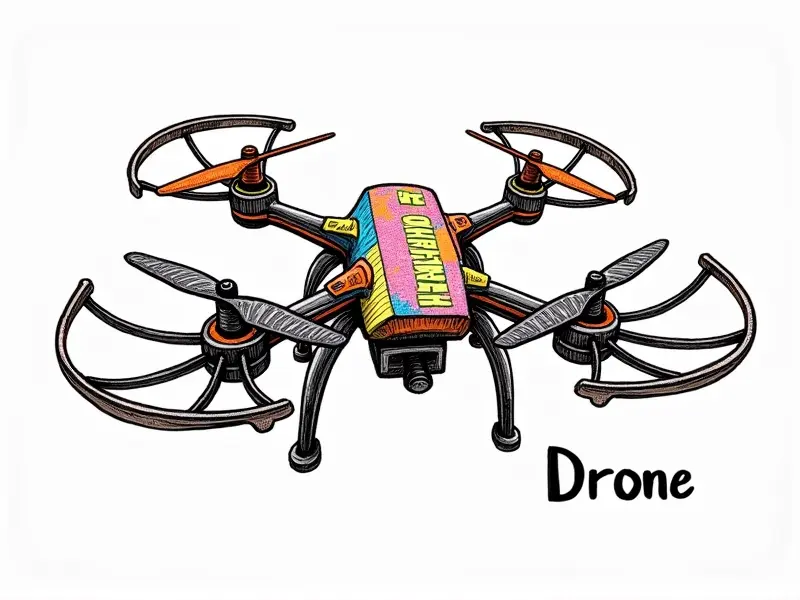Does GPS affect drone battery?

Is GPS Killing Your Drone Battery Fast?
When it comes to drone operation, one of the most critical factors is battery life. The performance and longevity of your drone's battery can significantly impact how long you can keep your drone in the air. One aspect that often raises questions among drone enthusiasts is whether GPS affects drone battery life negatively.
How GPS Affects Your Drone's Battery
The Global Positioning System (GPS) plays a crucial role in modern drones, providing essential data for navigation and stabilization. However, the increased reliance on GPS can have implications on your drone’s power consumption. As GPS modules constantly receive signals from satellites to maintain accurate positioning, they draw a continuous current that drains the battery more quickly than other components.
Does GPS Drain Drone Battery Life?
The short answer is yes; GPS does consume energy and can contribute to faster depletion of your drone's battery. However, the extent of this impact varies depending on several factors such as the type of drone, the quality of its GPS module, and how intensively you use GPS functions during flight.
The Hidden Cost of Using GPS in Drones
While GPS offers invaluable benefits like automated returns to home base or waypoint navigation, these features come at a cost. The continuous data processing required for real-time positioning and correction consumes additional power that might otherwise be used for longer flight times or more efficient operations.
Key Factors Affecting Battery Consumption
- Type of Drone: Different drones have varying levels of GPS integration, impacting overall energy usage.
- Battery Capacity: Larger batteries offer greater endurance but may not negate the effects of high power consumption from GPS.
- GPS Quality and Efficiency: Advanced GPS modules are designed to be more efficient in terms of power use, reducing overall impact on battery life.
Can You Extend Drone Battery Life Without GPS?
In many cases, it is possible to minimize the drain caused by GPS systems. By opting for manual control or using alternative navigation methods during less critical phases of flight, you can extend your drone's operational time significantly.
Alternative Navigation Methods
- Magnetic Compass: Some drones use magnetic compasses to maintain orientation and stability without relying heavily on GPS signals.
- Inertial Measurement Units (IMUs): These devices track acceleration, speed, and rotation angles to help the drone stay stable even when GPS is not active.
GPS: Friend or Foe for Drone Batteries?
The relationship between GPS and drone battery life isn't inherently antagonistic. While GPS does consume energy, its benefits often outweigh the costs in terms of operational safety, efficiency, and ease of use. The key is to understand how best to manage your drone’s power resources based on your specific needs.
Optimizing GPS Usage
- Limited Use: Turn off GPS when it's not absolutely necessary, such as during manual flight or in open areas with minimal obstacles.
- Battery Management: Choose drones optimized for efficient power use and consider high-capacity batteries to support extended operation.
How Much Power Does GPS Use on a Drone?
The exact amount of power consumed by GPS varies widely depending on the drone model. Generally, modern GPS modules are designed to be energy-efficient, but they still account for a notable portion of overall battery consumption during flight.
Power Consumption Metrics
- Average Current Draw: Most drones with integrated GPS consume around 100-200mA while active.
- Battery Capacity: A typical drone battery might provide anywhere from 5 to 18 volts, depending on the model and intended use.
Does Activating GPS Shorten Flight Time?
Activating GPS will generally reduce your flight time due to increased power consumption. However, this trade-off is often acceptable given the enhanced safety and functionality provided by integrated GPS systems.
Flight Time Impact
- Typical Reduction: Activating GPS can shorten a drone's flight time by approximately 10-25%, depending on how extensively it is used.
- Safety Benefits: Despite reduced flight duration, the safety features offered by GPS, such as return-to-home functionality and waypoint navigation, make this compromise worthwhile for most users.
Is GPS the Enemy of Drone Battery?
The relationship between GPS and drone battery life is complex. While GPS does contribute to faster battery depletion, it also offers significant advantages in terms of operational safety and efficiency. The key lies in balancing these factors based on your specific needs.
Making Informed Decisions
- Assess Your Needs: Determine whether the benefits of GPS outweigh its power consumption for your particular use case.
- Select Appropriate Equipment: Choose drones and batteries optimized for efficient power management when GPS is in use.
The Effect of GPS on Drone Batteries
In summary, the effect of GPS on drone battery life is a nuanced topic. While it does contribute to faster depletion due to continuous data processing, the benefits provided by GPS—such as enhanced safety and ease of navigation—are often worth the trade-off.
Conclusion
The impact of GPS on your drone's battery depends largely on how you use both technology and the specific capabilities of your device. By understanding these dynamics, you can make informed decisions to optimize your drone’s performance while preserving its operational efficiency.

